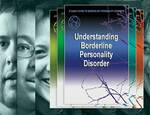To commemorate US BPD Awareness month, you can access the 5-video series, 'If Only We Had Known', developed by NEA-BPD to assist the families & loved ones of people diagnosed with Borderline Personality Disorder (BPD) to develop a better understanding of the condition & learn how to best help their loved one manage their condition, for free via instant rental. Just add the series to your cart, & enter the coupon code TW620, which is valid until the end of May, at check-out, & you'll be able to rent the video series instantly, allowing you to view the videos as many times as you like for 10 days from the date of purchase. The series is rated 4.41 stars out of 5, & from what I've seen so far (I'm part of the way through it as we speak), it's pretty informative. The series is made up of the following 5 titles:
- Understanding Borderline Personality Disorder
- Causes of Borderline Personality Disorder
- Diagnosing Borderline Personality Disorder
- Treating Borderline Personality Disorder
- Coping with Borderline Personality Disorder
Here's the blurb from the site:
If Only We Had Known: A Family Guide to Borderline Personality Disorder video series:
This series documents four families living with Borderline Personality Disorder. Each of the five videos focuses on a critical aspect of BPD: understanding what BPD is; what causes it; how it is diagnosed; how it is treated; and how people can learn to cope with BPD and rebuild fractured relationships. Leading BPD experts and advocates provide the most recent insights and explanations about Borderline Personality Disorder.If Only We Had Known: A Family Guide to Borderline Personality Disorder was funded by grant from the National Institute of Mental Health. A randomized controlled trial conducted with family members, under the direction of NEA-BPD, showed that people who viewed the five videos increased their knowledge about BPD, felt more empowered, and felt less emotional burden.
Experts In This Series.
These experiences are informed by insights and commentary from leading experts in the field including:Marsha Linehan, PhD – developer of Dialectical Behavior Therapy.
John Gunderson, MD – founder of the McLean Hospital Borderline Personality Disorder Center.
Peter Fonagy, PhD – co-developer of Mentalization-Based Treatment.
Jon G. Allen, PhD – co-author of Mentalizing in Clinical Practice.
Antonia New, MD – researcher focusing on the neurobiology of borderline personality disorder.
Frank Yeomans, MD – co-developer of Transference-Focused Psychotherapy.
Mary Zanarini, EdD – professor, Harvard Medical School and McLean Hospital.
Perry Hoffman, PhD and Alan Fruzzetti, PhD – co-developers of the NEA-BPD Family Connections.
Alec Miller, PsyD – director of the Adolescent Depression and Suicide Program, at Montefiore Medical Center.


Thank you for this.